- Gregg's Top Three Health Policy Articles
- Posts
- Gregg's Top Three Health Policy Articles
Gregg's Top Three Health Policy Articles
For the week of Jul 11-18, 2025
If you can only read three things about health policy this week, I suggest...
The Top Three...
The Hill: Hospitals Across Nation Brace For Medicaid Cuts Under ‘Big, Beautiful’ Law Hospitals are bracing for the impact from the Medicaid cuts in President Trump’s sweeping spending and tax cut law. While most of the cuts won’t happen immediately, rural facilities in particular say they likely will have to make difficult financial decisions about which services they can afford to keep and which may need to be cut. Hospitals loudly raised alarms about the legislation, but their warnings went unheeded, and now they say they will bear the brunt of the changes. (Weixel, 7/13)
The Wall Street Journal: Obamacare Insurers Seek Double-Digit Premium Hikes Next Year If you buy your own health insurance, you are probably going to pay more next year—a lot more. Insurers are seeking hefty 2026 rate increases for Affordable Care Act marketplace plans, the coverage known as Obamacare. Blue Cross & Blue Shield of Illinois wants a 27% hike, while its sister Blue Cross plan in Texas is asking for 21%. The largest ACA plans in Washington state, Georgia and Rhode Island are all looking for premiums to surge more than 20%. (Wilde Mathews, 7/18)
Reuters: Trump's Spending Bill Will Likely Boost Costs For Insurers, Shrink Medicaid Coverage President Donald Trump's spending bill is set to raise administrative costs and make managing costs more difficult for insurers like UnitedHealthcare and CVS Health's Aetna that operate Medicaid health plans, experts say. As a result, those insurers will likely pull back their Medicaid coverage and invest more in existing markets to retain their healthier members, experts said. (Niasse, 7/14)
For a Deeper Dive...
The Hill: White House Agrees To Exempt PEPFAR From Rescissions Office of Management and Budget Director Russell Vought told reporters after meeting with Senate Republicans on Tuesday that the White House is on board with a substitute amendment to the rescissions package that would exempt PEPFAR, the global anti-AIDS initiative from cuts. Vought said that the president could accept the substitute amendment to exempt the President’s Emergency Plan for AIDS Relief, an initiative George W. Bush launched in 2003, from rescissions. (Bolton, 7/15)
MedPage Today: Vaccines, Transgender Care, COVID: Senators' Questions For HHS Nominee Run The Gamut Brian Christine, MD, the Trump administration's nominee for assistant secretary for health, fielded questions on a wide variety of topics at his Senate confirmation hearing Wednesday. Sen. Bernie Sanders (I-Vt.), ranking member of the Senate Health, Education, Labor, and Pensions (HELP) Committee, which was holding the hearing, asked Christine about the reconciliation bill President Trump signed into law July 4. Sanders wanted to know whether Christine, a urologic surgeon from Mountain Brook, Alabama, thought the law would "help make America healthy again" if it throws 17 million Americans -- many of whom are on Medicaid -- off of their health insurance. (Frieden, 7/16)
MedPage Today: 'Big Beautiful Bill' Has Health Provisions That Flew Under The Radar When President Trump signed the One Big Beautiful Bill Act into law on the Fourth of July, many people heard about the major provisions that affected healthcare, such as hundreds of millions of dollars in cuts to Medicaid and a 1-year, 2.5% increase in payments under the Medicare Physician Fee Schedule. But what about some of the lesser-known health provisions? (Frieden, 7/11)
Axios: New Medicaid Work Rules Put States In A Bind The new Medicaid work rules in President Trump's tax-and-spending law put states on a tight timetable for setting up systems to notify millions of recipients about the requirements — and to track if they're complying. Previous efforts to set work rules in Georgia and Arkansas showed it could be a messy and expensive process that generally relies on outside vendors to set up the necessary infrastructure. (Reed, 7/14)
NBC News: Another Report Suggests Medicaid Cuts Could Lead To Thousands Of Deaths The Medicaid cuts in President Donald Trump’s domestic policy bill could result in more than 1,000 additional deaths every year, according to a report published Wednesday in JAMA Health Forum. The cuts could also lead to nearly 100,000 more hospitalizations each year, the report found, and around 1.6 million people may delay seeking care. (Lovelace Jr., 7/16)
KFF Health News: Surprise Medical Bills Were Supposed To Be A Thing Of The Past. Surprise — They’re Not Last year in Massachusetts, after finding lumps in her breast, Jessica Chen went to Lowell General Hospital-Saints Campus, part of Tufts Medicine, for a mammogram and sonogram. Before the screenings, she asked the hospital for the estimated patient responsibility for the bill using her insurance, Tufts Health Plan. Her portion, she was told, would be $359 — and she paid it. She was more than a little surprised weeks later to receive a bill asking her to pay an additional $1,677.51. “I was already trying to stomach $359, and this was many times higher,” Chen, a physician assistant, told me. (Rosenthal, 7/18)
Newsweek: 80% Of US Counties Contain 'Health Care Deserts' A growing number of Americans find themselves living in "health care deserts," areas lacking in the specific infrastructure and services needed to ensure timely access to medicine and care, new data suggests. According to new research from health care and prescription price-comparison website GoodRx, 81 percent of U.S. counties—home to more than 120 million Americans—fall under this definition in some way. This includes those which lack proper access to either pharmacies, primary care, hospital beds, trauma centers or community health centers. (Cameron, 7/16)
What is Changing...
The Washington Post: Trump Officials Halt ‘Dangerous’ NIH Research, Overriding Career Scientists In May, President Donald Trump signed an executive order in the Oval Office surrounded by his top health officials, vowing a crackdown on “dangerous gain-of-function research” on viruses and pathogens that he alleged was occurring in the United States with inadequate oversight. “It’s a big deal,” Trump had said, alluding to the highly contested theory that the covid pandemic was caused by a lab leak related to such research in China. Soon after, researchers at the National Institutes of Health spent weeks assessing experiments for risk and preparing a report for the White House on what studies to halt. (Natanson, Johnson and Achenbach, 7/16)
The Hill: Trump Admin Shuts Down 988 LGBTQ Mental Health Line States and mental health organizations are bracing for the closure of a specialized service within 988, the National Suicide and Crisis Lifeline, for LGBTQ youth on Thursday under orders from the Trump administration amid its broader spending cuts and the dismantling of programs dedicated to diversity and inclusion. “When the line goes silent, there are a lot of open questions that we’re trying to prepare for,” said Mark Henson, vice president of government affairs at the Trevor Project, an LGBTQ youth suicide prevention organization that responds to roughly half of 988’s calls and text messages from LGBTQ young people. (Migdon, 7/16)
For the Visual Among Us...
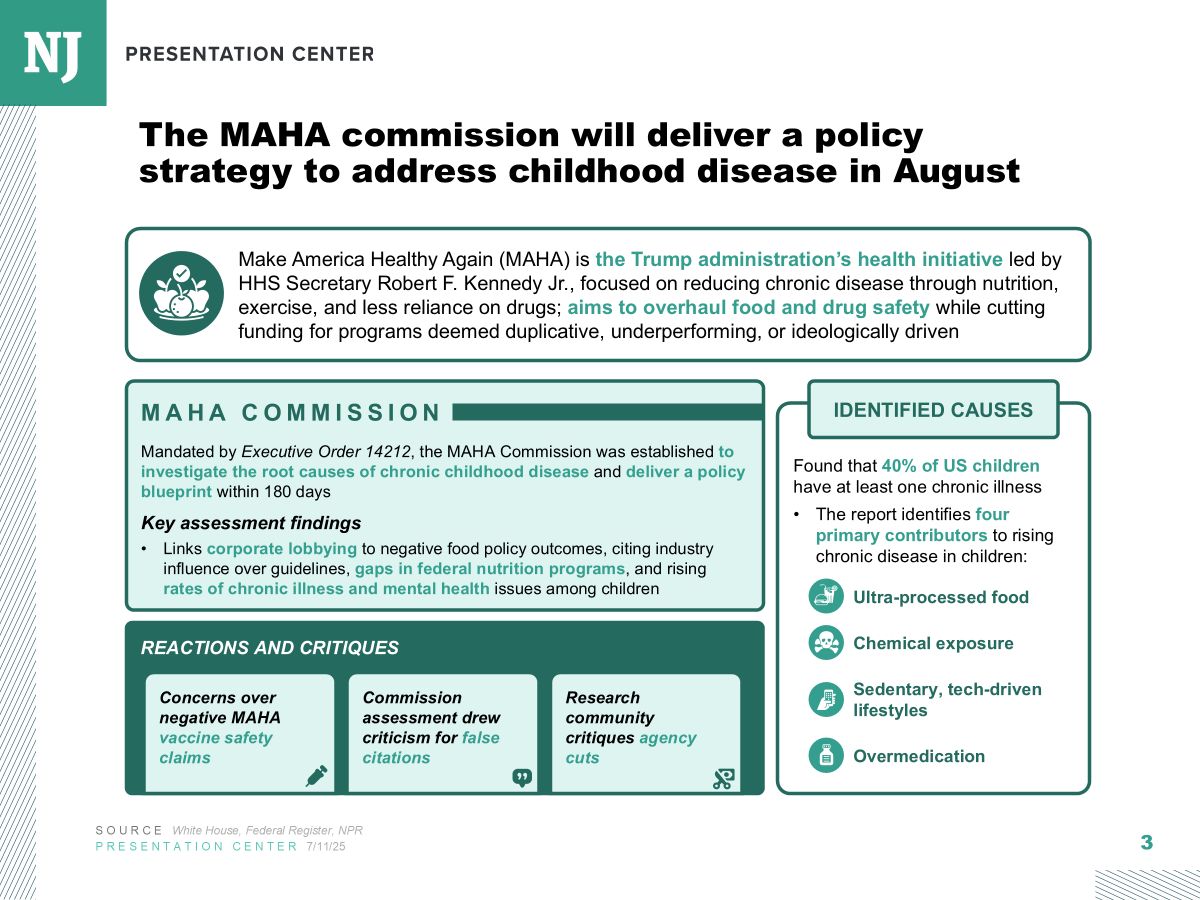
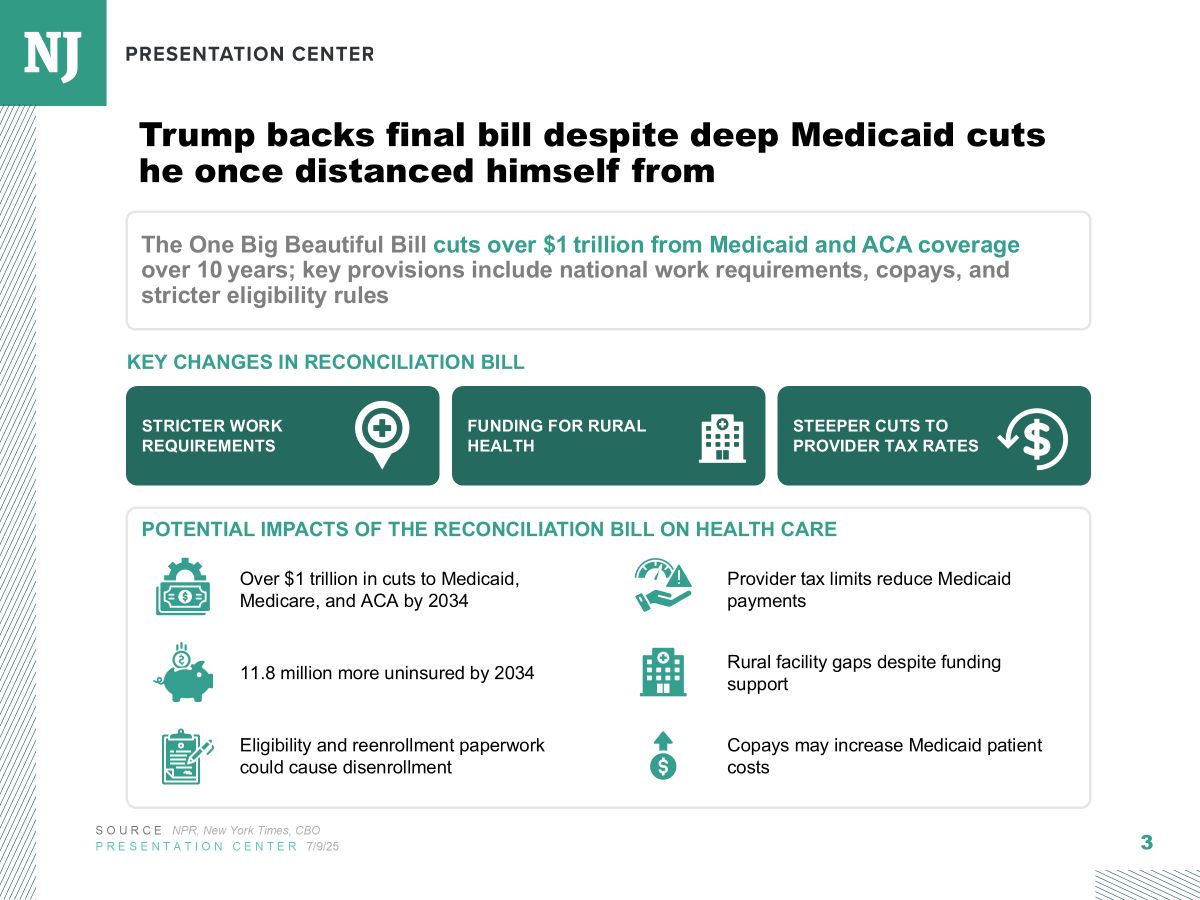
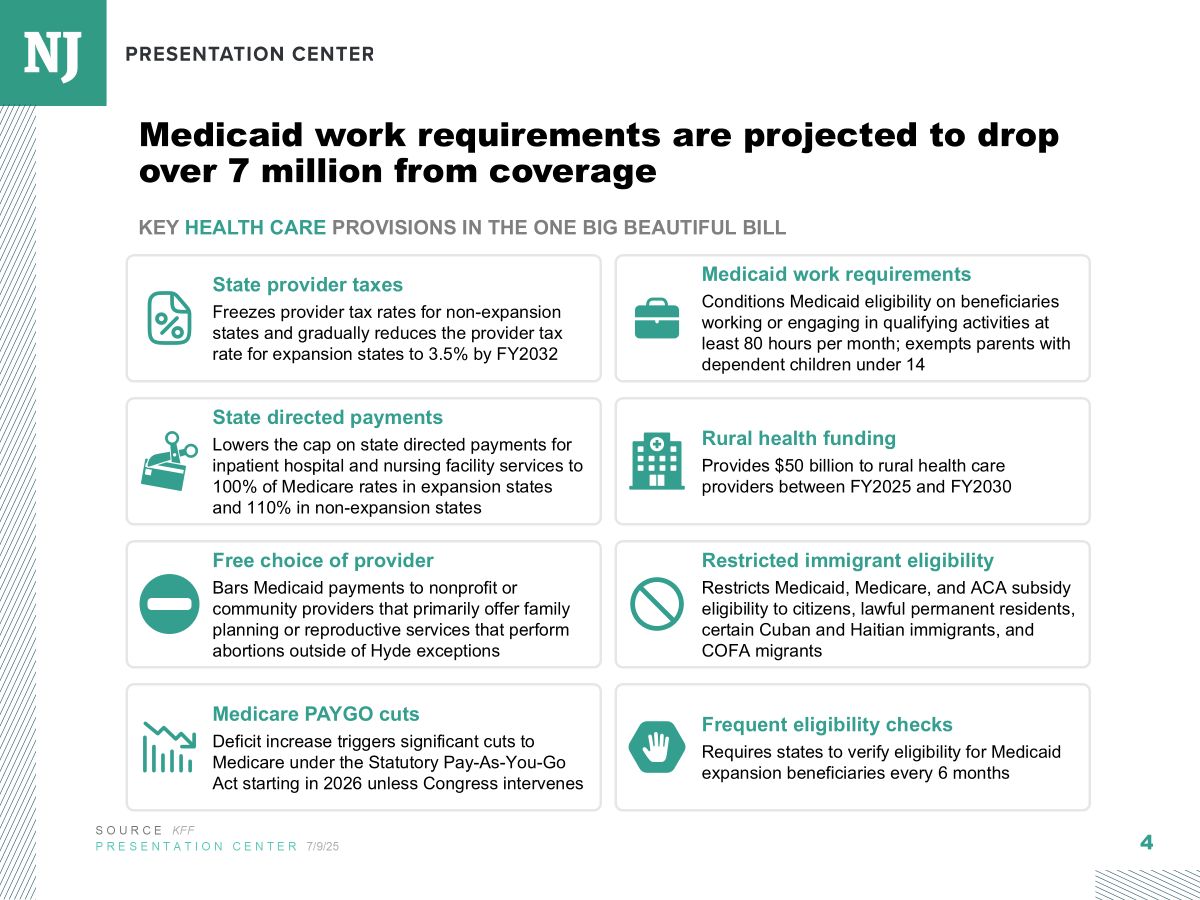
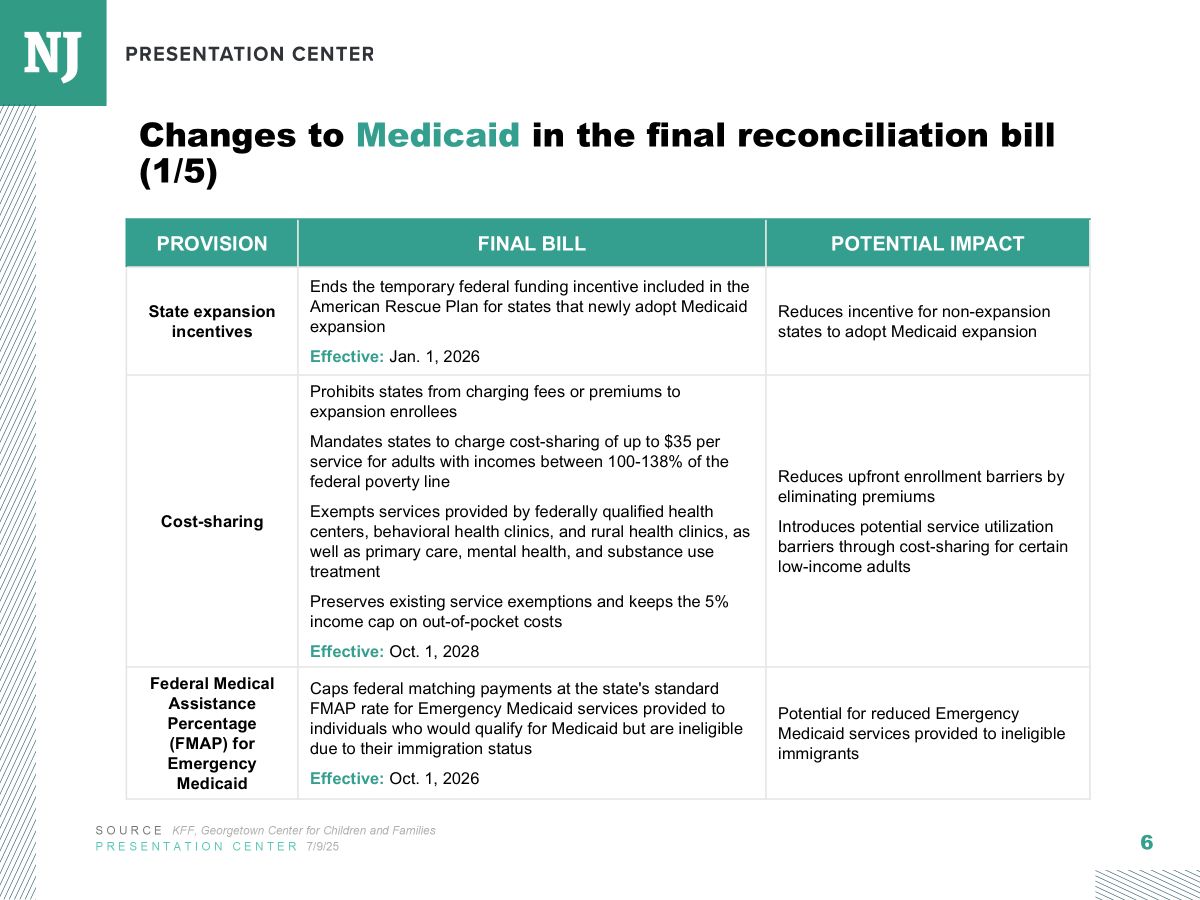
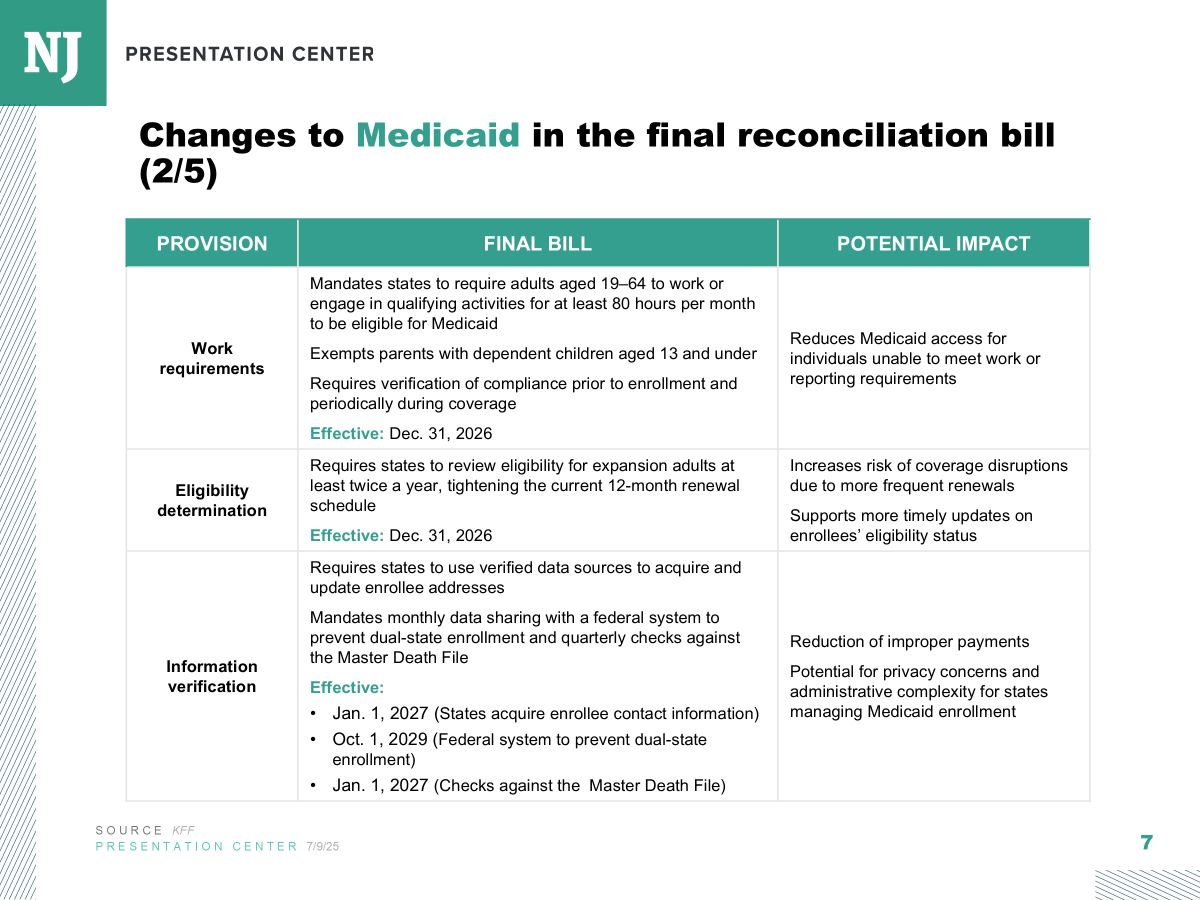
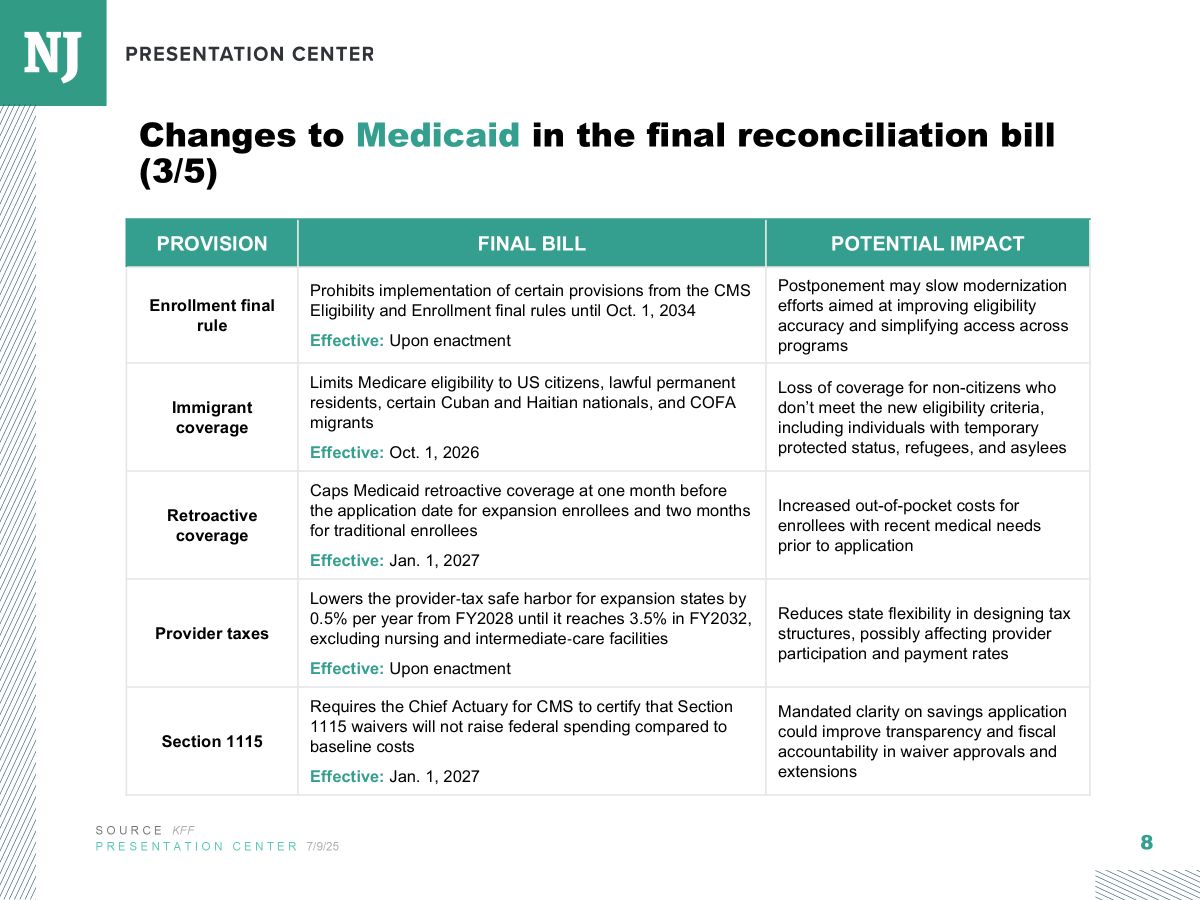
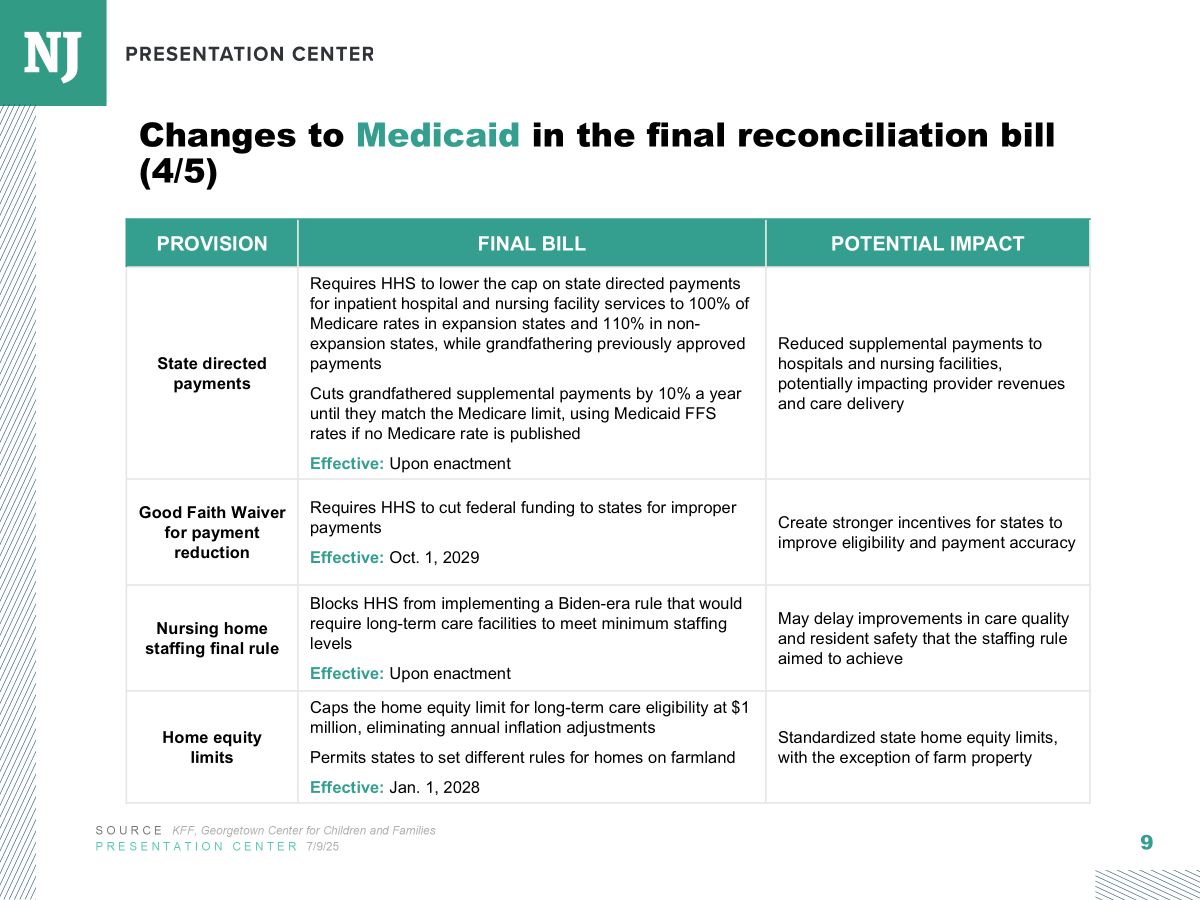
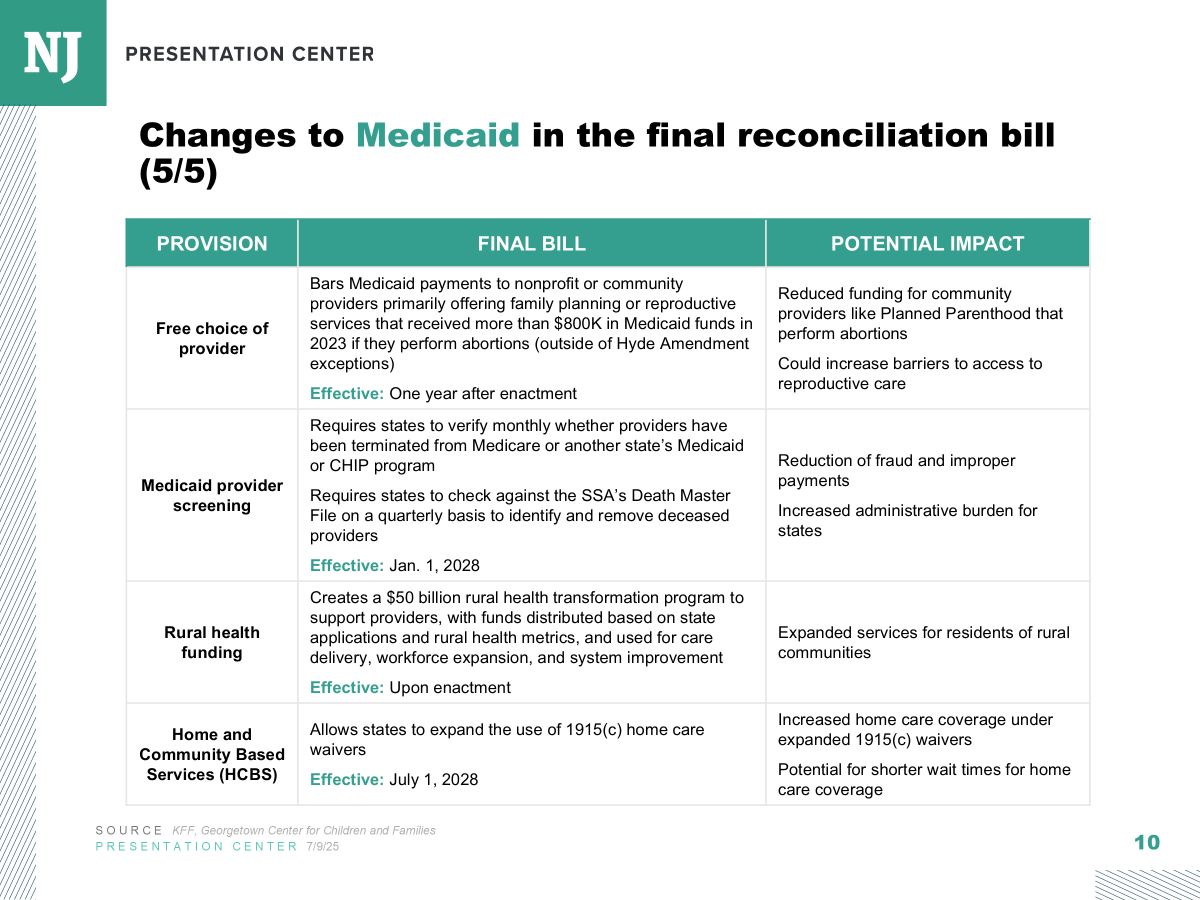
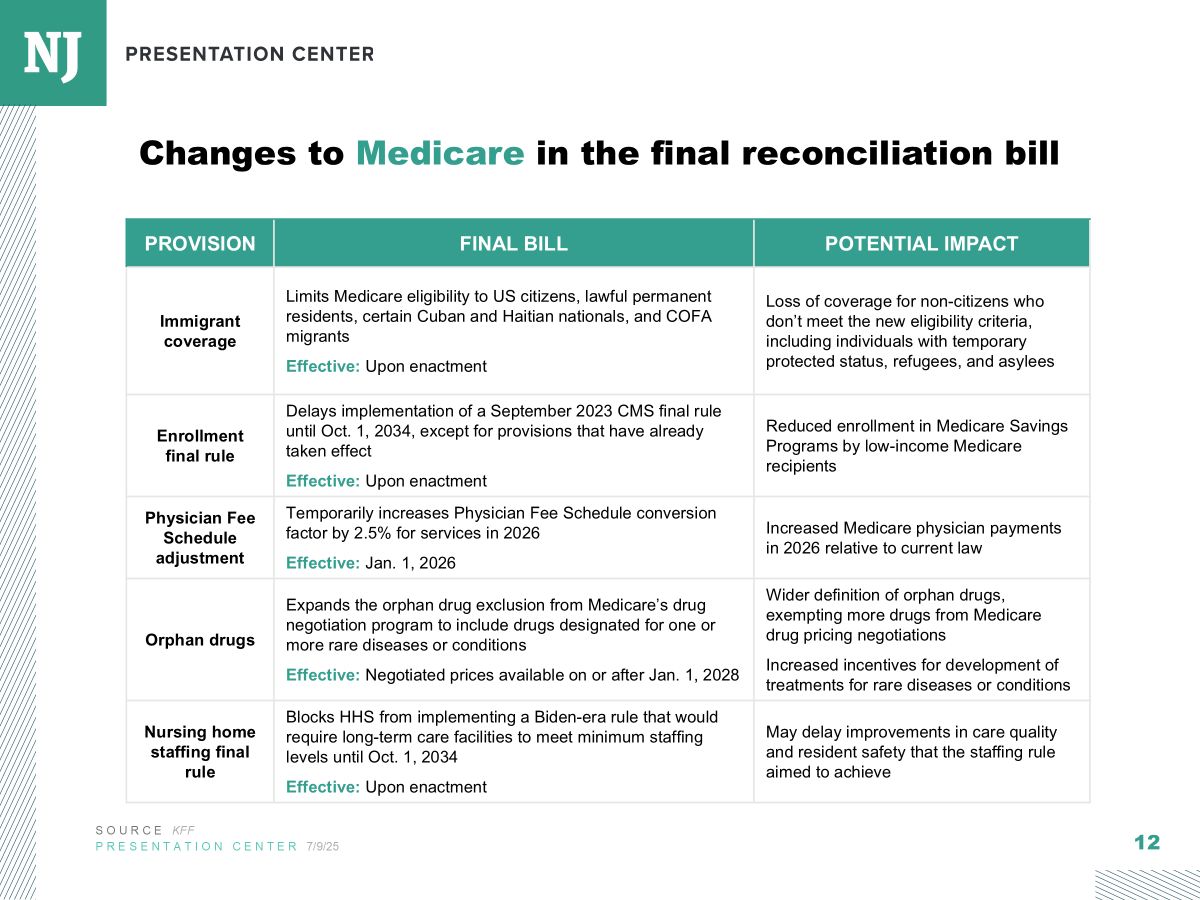
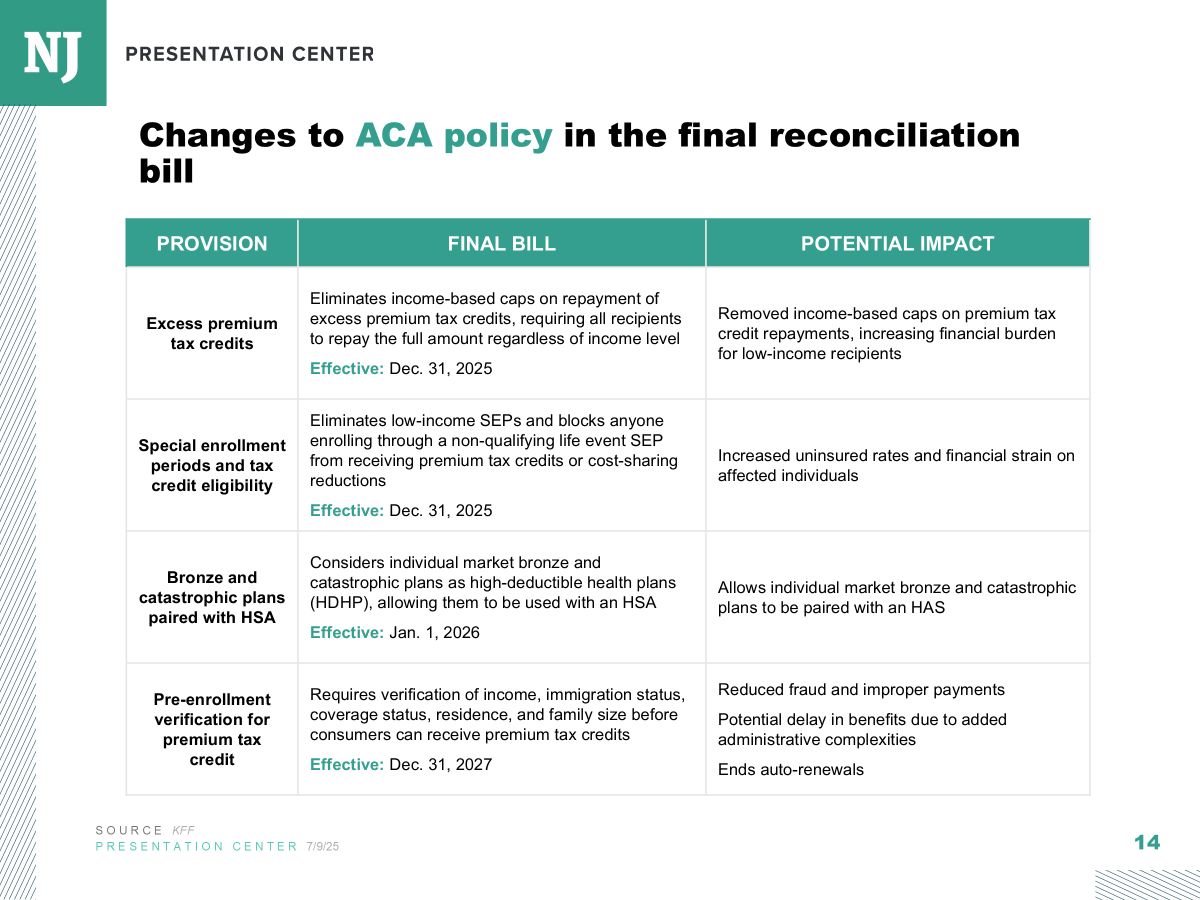
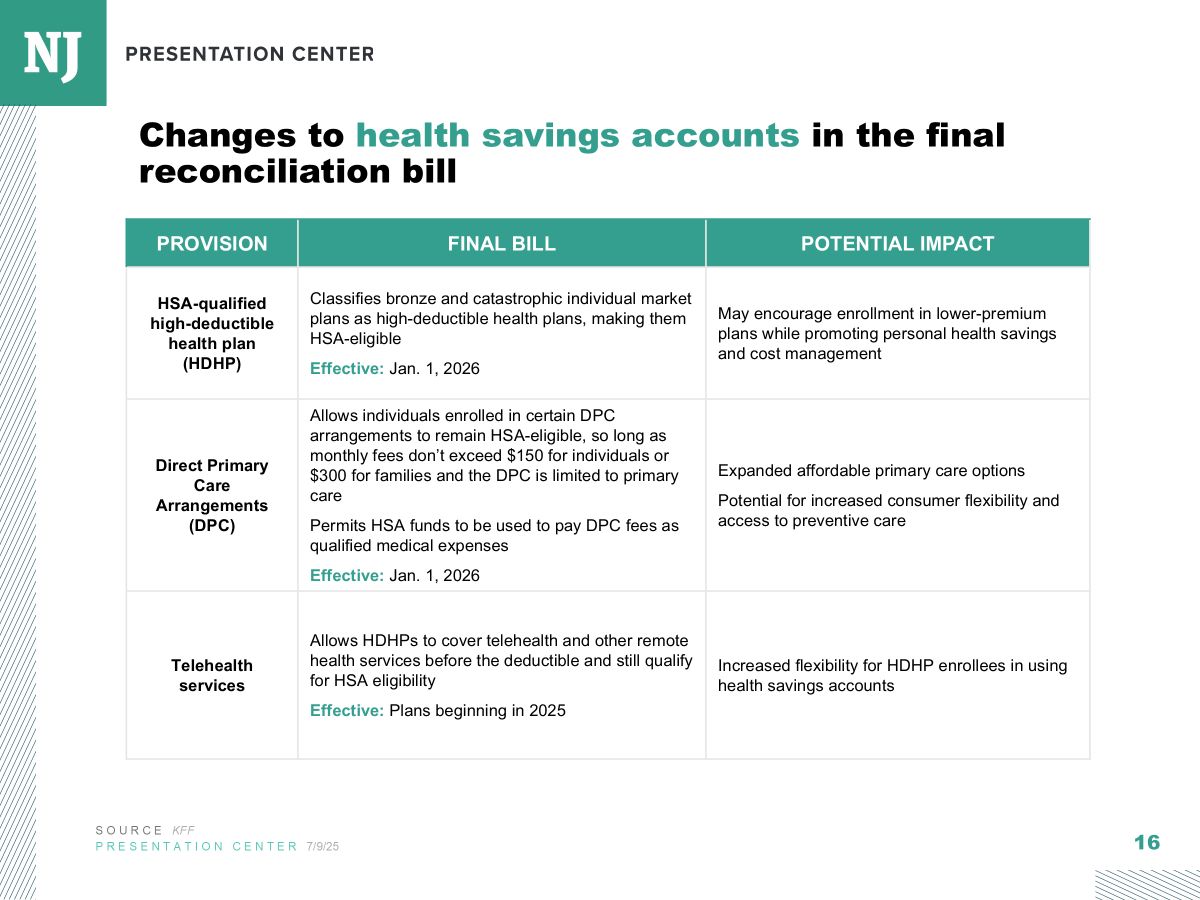
A few years ago I started a weekly e-mail for friends and colleagues who want to keep up on major federal health policy developments but did not have time to plod through all the minutiae--they were busy doing important things like running organizations and taking care of patients! Much to my surprise, it became pretty popular. I have now converted to a weekly newsletter format so you can manage your own subscription preferences and forward to others that might be interested.
These summaries represent my judgement on health policy issues that may not on the front pages, but are relevant to clinicians, administrators, and educators. I monitor many news sources and clipping services to identify content for this newsletter and I try hard to be as factual, balanced, and non-partisan as possible. While the articles are written by others (with credit attributed), the choice of what to include is entirely mine. If you are interested in receiving a daily summary of health policy news, you might consider signing up for the KHN Morning Briefing. If you enjoy podcasts, I suggest What the Health? and Tradeoffs.
-Gregg S. Margolis, PhD